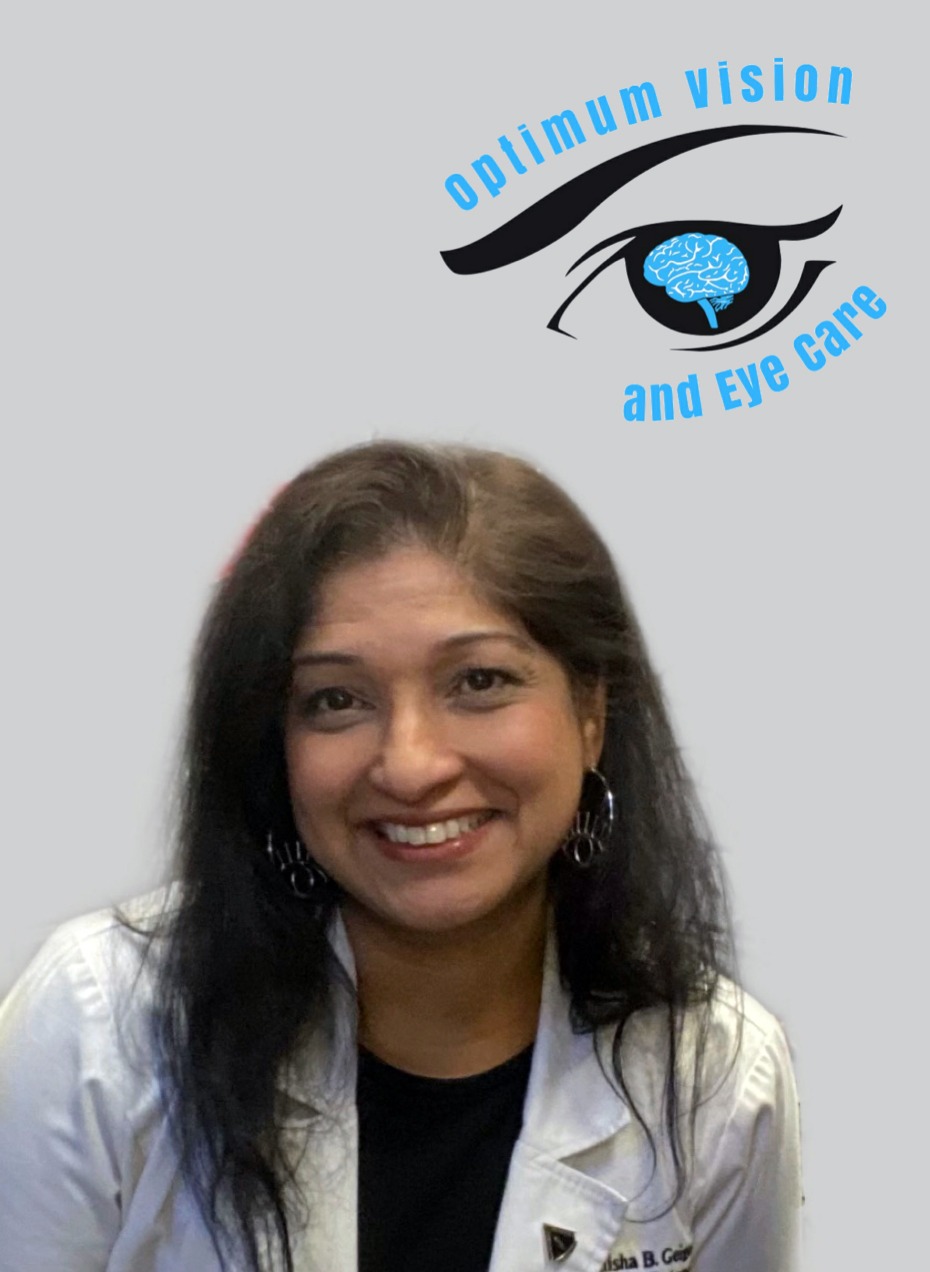Neuro-Optometry Is Her Focus
Dr. Manisha Geiger has a vision for the Brain Injury Alliance of Arizona.
That’s fitting, as this neuro-optometrist is also a member of the Advisory Council. There is little known about the specialty of neuro-optometry. This is the main reason she is so excited to bring awareness to other professionals, survivors of brain injury and their caregivers.
“Brain injury is a hidden disability; the symptoms are very subjective. The right tests are needed to show all those involved…that this person does have a disability.”
Neuro-Optometry Is Her Focus
Dr. Manisha Geiger has a vision for the Brain Injury Alliance of Arizona.
That’s fitting, as this neuro-optometrist is also a member of the Advisory Council. There is little known about the specialty of neuro-optometry. This is the main reason she is so excited to bring awareness to other professionals, survivors of brain injury and their caregivers.
“Brain injury is a hidden disability; the symptoms are very subjective. The right tests are needed to show all those involved…that this person does have a disability.”
Neuro-optometric rehabilitation therapy can be an effective form of therapy for both young and older patients. She says, “Many patients have come to me after years of being unable to find a solution to their symptoms of brain fog, dizziness and visual perception issues after a brain injury. That’s because vision is strongly integrated to the brain, it is often a neurological issue, not just about their eyesight. Which isn’t always obvious.”
Patients often report they they’re seeing double or have odd visual disturbances. Dr. Geiger looks for other red flags, such as changes in gait, balance, or the inability to retrieve words. “I also ask about changes in their personality. Do they not feel present in their environment? Do they suddenly feel like not being sociable? Are they depressed? Too often, they begin to live in a more compressed or closed-in world.”
Since she was 12 years old, the New York native wanted to be a doctor. She volunteered at numerous physician practices and hospitals, then realized that she wanted a profession that offered her more of a work/life balance. While earning her Bachelor of Science degree from SUNY at Stony Brook, she discovered the field of optometry. After shadowing a few optometric practices, it became clear that this profession was so much more than just glasses and contact lenses. Optometry offered many subspecialties and would allow her to be a doctor and attain that work/life balance.
She went on to earn her Doctor of Optometry at State University of New York College of Optometry in Manhattan, New York. Here she specialized in pediatrics, vision therapy and neuro-optometry. “Unlike the other specialties within Optometry where one can observe immediate responses from their treatment providing instant gratification, neurorehabilitation and therapy take time,” she recalls. “I enjoyed forming those bonds with my patients and observing the changes made throughout the entire process of neuro re-education through the visual system.” Her internship at Beth Israel Hospital reaffirmed her commitment to care for children with special needs.
Dr. Geiger moved to Arizona in 1997, where she started working in a corporate environment incorporating optometric vision therapy and rehabilitation wherever possible. In 2016, she left to open her private practice – Optimum Vision and Eye Care in Scottsdale. The new setting allowed her to reach a larger patient base and focus on this much-needed specialty. She was able to buy the right equipment and hire and train some wonderful staff.
“Brain injury is a hidden disability; the symptoms are very subjective. The right tests are needed to show all those involved (lawyers, doctors, employers and family) that this person does have a disability. They are suffering and we can help, we can create change.”
One patient that stood out early in her career was a 15-year-old boy. According to his mother, after his brain tumor resection, one eye was turned in. At that time, they opted to have muscle surgery to straighten the eye; unfortunately, his vision was not any better.
Although his other eye was turning in, they did not want another surgery. Instead, he simply wanted to be a normal teen and go back to school in a regular classroom instead of online classes. “After 9 months of neuro-optometric rehabilitation therapy we reached that goal. I took this as a sign from the universe, or from her own recently deceased mother that this was her purpose in life, my gift that needed to be shared.”
Her practice has grown, and she now offers therapy for sports vision training, binocular vision dysfunctions and, of course, brain injury, both acquired and traumatic. “It is an honor to be involved with the Brain Injury Alliance of Arizona. It’s wonderful how BIAAZ offers holistic support to patients and caregivers. I’ve referred many patients to them to join the organization’s invaluable support groups.”
Carrie Collins, CEO of the Brain Injury Alliance of AZ, welcomes Dr. Geiger’s unique perspective on the relationship between brain injury and vision. “She understands that everybody’s brain injury is different, and that
accurate concussion analysis and TBI rehabilitation requires precise diagnostics and a longer-term neuro view. What’s more, they need to know about the many free services and programs that are available.”
Outside the practice, Dr. Geiger enjoys walks with her two Boston Terriers and spending time with her husband and two sons.
ABOUT BRAIN INJURY ASSOCIATION OF ARIZONA
The Brain Injury Association of Arizona (BIAAZ) is the only statewide nonprofit organization dedicated to improving the lives of adults and children with all types of brain injuries through prevention, advocacy, awareness and education. BIAAZ also houses the Arizona Brain Health Resource Center, a collection of educational information and neuro-specific resources for brain injury survivors, caregivers, family members and professionals.
What began in 1983 as a grassroots effort has grown into a strong statewide presence, providing valuable life-long resources and community support for individuals with all types of brain trauma at no charge.






